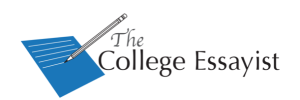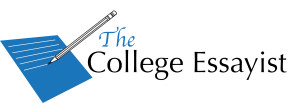Valerie Richmond - Massachusetts Institute of Technology '19
Essay prompt for Johns Hopkins University:
Johns Hopkins University was founded in 1876 on a spirit of exploration and discovery. As a result, students can pursue a multi-dimensional undergraduate experience both in and outside of the classroom. Given the opportunities at Hopkins, please discuss your current interests—academic or extracurricular pursuits, personal passions, summer experiences, etc.—and how you will build upon them here. (300-500 Word limit)
Essay:
My middle school self spent her evenings in front of a music stand for which she was already too tall. I would dive into that week's clarinet etude, punctuating the tune with squeaks and wrong notes, still full—mentally and physically—from the dinner table offerings, food and academic discussion. My parents expected my sounds only to improve. But then, in grade ten, I attacked multiphonics, playing more than one note at a time, and erased that hope for improvement. To make up for my inability to master the technique, I became an expert on the theory, which surprisingly contained mathematical concepts. Two notes that sound good together have very simple ratios of frequencies. The notes I'd play together probably had ratios somewhere around 453/920. But I liked the theory more anyway. The noises made the math real. I started listening for matching frequencies, and would agitate my band friends by blurting out fractions in the middle of songs.
In grade eleven I was accepted to a residential STEM high school on a college campus. While I continued to play my clarinet in the university bands there, as I hope to do at Johns Hopkins, the new applications of math that I discovered were far less painful for my eardrums.
One of the required classes I took on campus, Advanced Computational Problem Solving, was as exciting as the name suggests (very). My math courses showed me that the recursive algorithms I created for my roller coaster simulator project in the course were based on mathematical induction, a fundamental proof technique. This connection, like the reedy multiphonics of my clarinet, made math like an amusement park ride, literally and figuratively. Later, the static matrices I learned to manipulate in linear algebra danced across the screen when I used them for a message-encoding program. In addition, the Philosophy of Religion essay in which I tied mathematical asymptotes into my argument for the possible existence of actual infinities is my star accomplishment from the course, but I'm sure I'd find some way to refine my argument if I took JHU's "Mathematics of Infinity" or "Religion and/or Science" courses.
Math bloomed for me again this summer at an MIT mechanical engineering program, where I came to see the numerical language as not only the beautiful blood of natural sciences, but also a practical tool for shaping the world around me. I found myself carefully measuring and crafting space-saving hangers out of wire and bedside racks out of wood to make my dorm room less cramped, and I know Johns Hopkins' clubs like "Design, Build, Fly" would allow me to use that same creativity for better reasons than widening a small living space.
My intense interest in math at the intersection of other sciences makes me excited for interdisciplinary learning and courses across JHU's colleges. I hope to continue to explore this passion and hopefully become as inspiring as the JHU-educated professors and research mentors who have led me to it.
Commentary:









